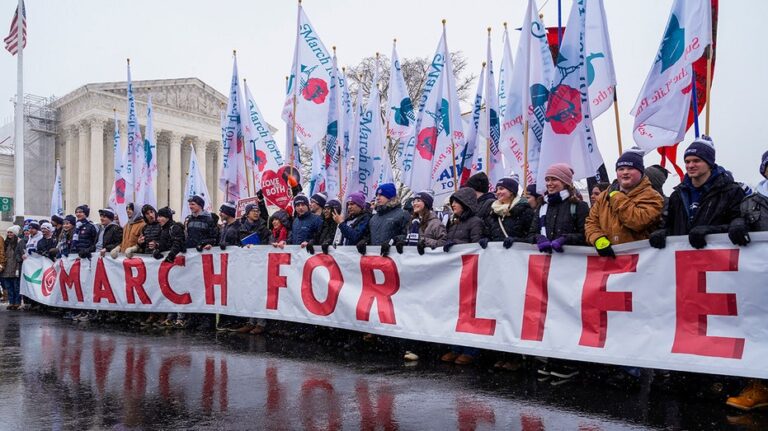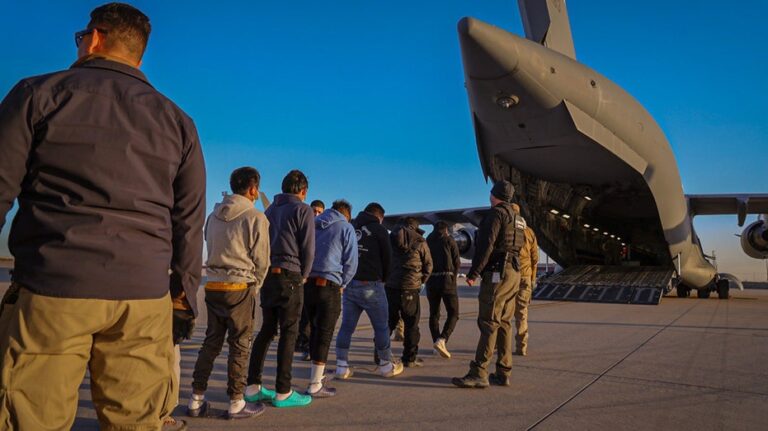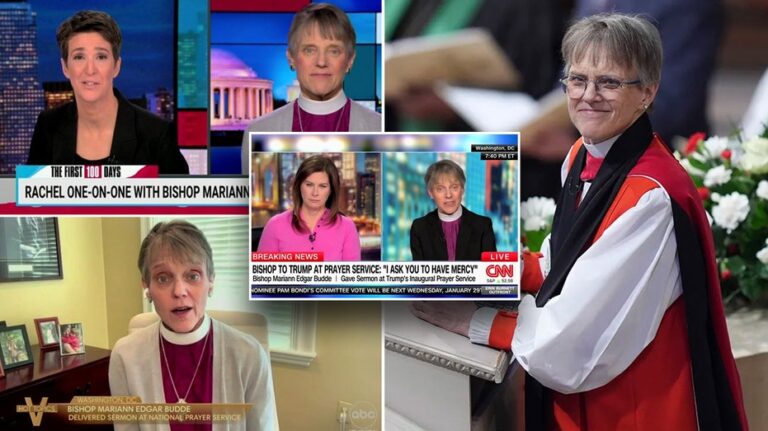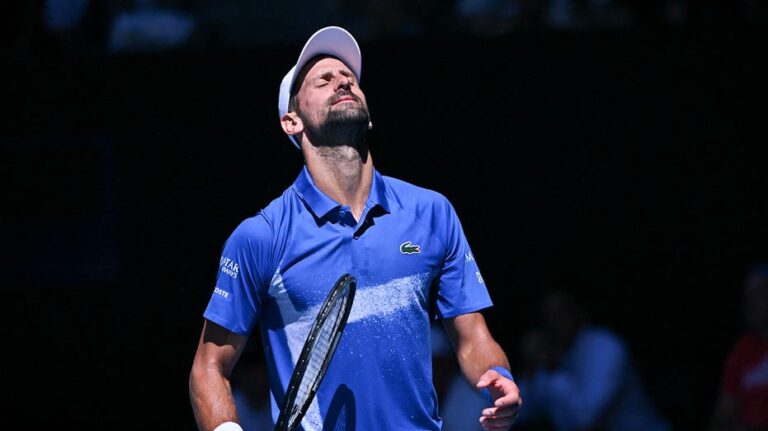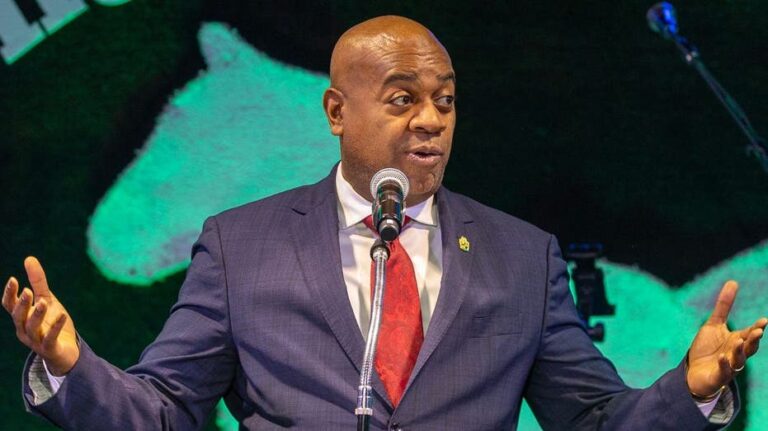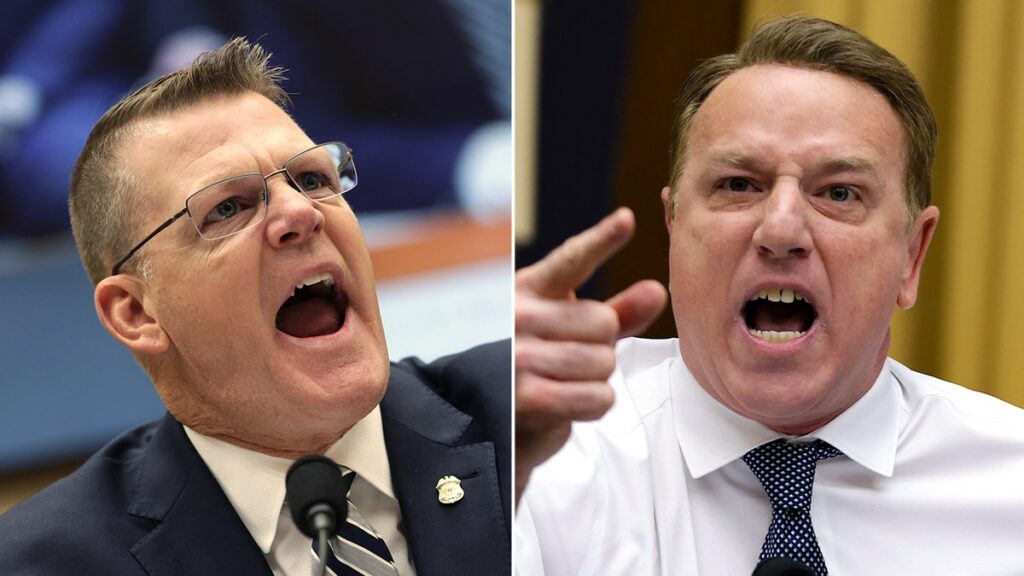
By now you may have seen the headlines, “Trump assassination attempt hearing devolves into screaming match.” I encourage you to watch the full exchange between myself and acting Secret Service Director Rowe.
Heated back and forths are nothing new when it comes to Congress. But last week’s exchange had nothing to do with partisanship and everything to do with his agency’s competency, or rather the lack thereof. At its core, the sparks flew because the current head of the US Secret Service (USSS) seemingly learned no lessons from the historic failures in Butler, Pennsylvania.
We’re just under five months removed from the tragic events of July 13, 2024, that left Corey Comperatore, a volunteer firefighter and father of two, dead, the leading Republican presidential candidate wounded, and the nation in shock.
History could have, and should have played out much differently at President Trump’s Butler rally. Those shots would never have been fired had the leadership within the USSS simply lived up to its zero-fail mission.
TRUMP ASSASSINATION ATTEMPT HEARING DEVOLVES INTO SCREAMING MATCH
This week, the bipartisan House Task Force on the Attempted Assassination of Donald J. Trump issued its final report that details the failures of the USSS at the Butler rally and recommended measures the agency should implement going forward.
This report underscores why the exchange between acting Director Rowe and I was in fact so heated. The head of the Secret Service deflected and refused to answer direct questions about his actions while at the helm of what should be the world’s premier protection agency.
If the USSS can’t be fully transparent months after the Butler rally, can we trust that high-profile protectees, regardless of their politics, are safe?
Our Task Force has heard from former USSC agents, and whistleblowers themselves that the agency is in need of systemic culture change. This is reflected in the USSS’s failure to secure the perimeter and the high ground at the venue with the right equipment in the proper manner. Here are three failures that must be addressed based on our report.
It’s well known now that the location from which would-be assassin Thomas Crooks fired from, the AGR complex, was left unsecured prior to and during the July 13 rally, despite concerns from local law enforcement on the ground. The local law enforcement present at the rally displayed true courage and deserve our thanks, but the simple fact is that USSS leadership bears ultimate responsibility for the safety of its protectees. If the USSS feels it does not have the necessary personnel to secure a potential site, it needs to stick to a consistent, streamlined process to secure additional resources, rather than the ad hoc approach it employed in Butler.
Moving forward, the USSS needs to ensure it is on the same page as every partner agency involved in securing the perimeter. This means open communication between everyone involved, in advance, and disseminating that information so that all parties know who is in charge and where.
TRUMP ASSASSINATION ATTEMPT SUSPECT RYAN ROUTH TO FACE COURT HEARING AFTER MOVING TO DELAY TRIAL
USSS must also plan for coverage both inside, as well as outside the perimeter, which was not the case when it came to the AGR complex. The failure to do so on July 13 meant that Crooks was left with a clear line of sight to the rally stage, and rally goers nearby impeded USSS and partner agencies’ ability to locate him. These line of sight vulnerabilities must be determined and considered ahead of time.
When it comes to communications, USSS missed opportunities to apprehend Crooks before he opened fire. Faltering radio communications led to confusion. Some USSS countersnipers and local sniper teams had to instead communicate via text message. Critical information was not sent wide to USSS personnel, which meant the agents stationed closest to President Trump were not made immediately aware of the threat posed by Crooks until he opened fire. The existence of two, rather than one unified command post further impaired USSS’s ability to react quickly and decisively.
Communications failures on the ground could have been fixed if the USSS ensured there was a hierarchy in place to alert not only all of its own agents, but local law enforcement as well. There needs to be a definite plan of action and communication that can be accessed afterwards for any potential reviews and investigations.
The lack of uniform training standards meant that agents involved in operational planning and execution ahead of the Butler rally were simply not experienced for the task at hand. Personnel is policy, and the lack of consistent training for all USSS agents at Butler, PA falls at the feet of the agency’s higher-ups.
CLICK HERE FOR MORE FOX NEWS OPINION
We also know that Crooks used a drone to survey the Butler rally location ahead of time, while the USSS had technical issues with its own counter drone system and didn’t have an operational backup on site. When it comes to technology like drones, it’s imperative that personnel are properly trained on the systems in use and a backup system is readily available. Should something go wrong, the USSS needs to ensure redundancy.
It would shock most Americans to learn that the USSS still can’t tell us who exactly was in charge in Butler that day. Countersniper teams did not have clearly defined roles, compounding the problems they already faced due to inefficient communications. The fact that USSS had to rely on inexperienced Homeland Security Investigation (HSI) agents becomes more absurd when you consider testimony that states they received “1-hour PowerPoint” trainings in addition to a single morning briefing on the day of the rally.
The American people deserve assurances that agents are adequately trained and kept current on how protective operations are conducted, regardless of the agency’s workload. Similar to how USSS should have worked more cooperatively with local partners, the agency needs to integrate HSI personnel into USSS’s own trainings when it’s clear they’ll be needed.
Above all, a major cultural problem exists within the USSS. This truth is undeniable given the tragic fact that an untrained 20-year-old with two weeks’ notice was able to outsmart and outmaneuver the very agency whose number one job is to protect our most important elected officials.
While now-former USSS Director Cheatle resigned after her testimony before the House Oversight Committee in July, the overtly combative testimony I received from acting Director Rowe is alarming. Combined with our Task Force’s findings, it’s clear the Secret Service needs comprehensive changes, starting at the top.
CLICK HERE TO READ MORE FROM REP. PAT FALLON
By now you may have seen the headlines, “Trump assassination attempt hearing devolves into screaming match.” I encourage you to watch the full exchange between myself and acting Secret Service Director Rowe.
Heated back and forths are nothing new when it comes to Congress. But last week’s exchange had nothing to do with partisanship and everything to do with his agency’s competency, or rather the lack thereof. At its core, the sparks flew because the current head of the US Secret Service (USSS) seemingly learned no lessons from the historic failures in Butler, Pennsylvania.
We’re just under five months removed from the tragic events of July 13, 2024, that left Corey Comperatore, a volunteer firefighter and father of two, dead, the leading Republican presidential candidate wounded, and the nation in shock.
History could have, and should have played out much differently at President Trump’s Butler rally. Those shots would never have been fired had the leadership within the USSS simply lived up to its zero-fail mission.
TRUMP ASSASSINATION ATTEMPT HEARING DEVOLVES INTO SCREAMING MATCH
This week, the bipartisan House Task Force on the Attempted Assassination of Donald J. Trump issued its final report that details the failures of the USSS at the Butler rally and recommended measures the agency should implement going forward.
This report underscores why the exchange between acting Director Rowe and I was in fact so heated. The head of the Secret Service deflected and refused to answer direct questions about his actions while at the helm of what should be the world’s premier protection agency.
If the USSS can’t be fully transparent months after the Butler rally, can we trust that high-profile protectees, regardless of their politics, are safe?
Our Task Force has heard from former USSC agents, and whistleblowers themselves that the agency is in need of systemic culture change. This is reflected in the USSS’s failure to secure the perimeter and the high ground at the venue with the right equipment in the proper manner. Here are three failures that must be addressed based on our report.
It’s well known now that the location from which would-be assassin Thomas Crooks fired from, the AGR complex, was left unsecured prior to and during the July 13 rally, despite concerns from local law enforcement on the ground. The local law enforcement present at the rally displayed true courage and deserve our thanks, but the simple fact is that USSS leadership bears ultimate responsibility for the safety of its protectees. If the USSS feels it does not have the necessary personnel to secure a potential site, it needs to stick to a consistent, streamlined process to secure additional resources, rather than the ad hoc approach it employed in Butler.
Moving forward, the USSS needs to ensure it is on the same page as every partner agency involved in securing the perimeter. This means open communication between everyone involved, in advance, and disseminating that information so that all parties know who is in charge and where.
TRUMP ASSASSINATION ATTEMPT SUSPECT RYAN ROUTH TO FACE COURT HEARING AFTER MOVING TO DELAY TRIAL
USSS must also plan for coverage both inside, as well as outside the perimeter, which was not the case when it came to the AGR complex. The failure to do so on July 13 meant that Crooks was left with a clear line of sight to the rally stage, and rally goers nearby impeded USSS and partner agencies’ ability to locate him. These line of sight vulnerabilities must be determined and considered ahead of time.
When it comes to communications, USSS missed opportunities to apprehend Crooks before he opened fire. Faltering radio communications led to confusion. Some USSS countersnipers and local sniper teams had to instead communicate via text message. Critical information was not sent wide to USSS personnel, which meant the agents stationed closest to President Trump were not made immediately aware of the threat posed by Crooks until he opened fire. The existence of two, rather than one unified command post further impaired USSS’s ability to react quickly and decisively.
Communications failures on the ground could have been fixed if the USSS ensured there was a hierarchy in place to alert not only all of its own agents, but local law enforcement as well. There needs to be a definite plan of action and communication that can be accessed afterwards for any potential reviews and investigations.
The lack of uniform training standards meant that agents involved in operational planning and execution ahead of the Butler rally were simply not experienced for the task at hand. Personnel is policy, and the lack of consistent training for all USSS agents at Butler, PA falls at the feet of the agency’s higher-ups.
CLICK HERE FOR MORE FOX NEWS OPINION
We also know that Crooks used a drone to survey the Butler rally location ahead of time, while the USSS had technical issues with its own counter drone system and didn’t have an operational backup on site. When it comes to technology like drones, it’s imperative that personnel are properly trained on the systems in use and a backup system is readily available. Should something go wrong, the USSS needs to ensure redundancy.
It would shock most Americans to learn that the USSS still can’t tell us who exactly was in charge in Butler that day. Countersniper teams did not have clearly defined roles, compounding the problems they already faced due to inefficient communications. The fact that USSS had to rely on inexperienced Homeland Security Investigation (HSI) agents becomes more absurd when you consider testimony that states they received “1-hour PowerPoint” trainings in addition to a single morning briefing on the day of the rally.
The American people deserve assurances that agents are adequately trained and kept current on how protective operations are conducted, regardless of the agency’s workload. Similar to how USSS should have worked more cooperatively with local partners, the agency needs to integrate HSI personnel into USSS’s own trainings when it’s clear they’ll be needed.
Above all, a major cultural problem exists within the USSS. This truth is undeniable given the tragic fact that an untrained 20-year-old with two weeks’ notice was able to outsmart and outmaneuver the very agency whose number one job is to protect our most important elected officials.
While now-former USSS Director Cheatle resigned after her testimony before the House Oversight Committee in July, the overtly combative testimony I received from acting Director Rowe is alarming. Combined with our Task Force’s findings, it’s clear the Secret Service needs comprehensive changes, starting at the top.
